
Salesian missionaries are making a difference in Angola where the need is great. Two-thirds of the population is illiterate, 68 percent live in poverty and half the children under the age of 5 are malnourished. Furthermore, 3 million Angolans have returned to the country since the end of a violent civil war in 2002 and are now living in refugee camps.
Few countries have suffered as much as Angola. Even after surviving decades of violent civil war, Angolans now struggle to overcome high poverty rates and unemployment, especially among young adults.
In Angola, Salesian missionaries focus their efforts on the areas of greatest need for youth. With 45 percent of Angola’s population under the age of 15, access to quality education is critical for the country’s success—yet remains out of reach to many. Just 20 percent of children between the ages of 12 and 17 receive secondary education. Salesian educational, training and support programs provide hope and opportunity where there otherwise would be little.
A network of Don Bosco Homes provides various programs addressing the needs of street children. The first contact Salesian missionaries have with youth starts in the streets of Luanda. Shelter and educational programs are offered. Those who are interested are taken to the Miguel Magone house where they spend a night in safety and have meals the following day. Once youth begin preparation to live with other children, they go to the Mama Margarita Home and live as boarding students. Here they can access education and gain the foundational skills needed for further education and long-term employment.
In Luanda, the capital and largest city in Angola, the Salesian-run St. Kizito House functions as both a day and night shelter and offers a clean environment for boys who are accustomed to life on the streets. The house has a large playground at the back, ideal for sporting activities, and also boasts a new plumbing system with running water, bathroom facilities and a well-equipped kitchen. Currently, St. Kizito houses 20 boys between the ages of 10 and 15.

Students who have access to technical and vocational training have an opportunity to obtain the skills needed to break the cycle of poverty and become productive members of their communities. Technical and vocational training is provided at Salesian centers in nine communities across Angola. Students learn skills that will help them prepare for their future—and the future of their communities.
The Salesians have long been providing services to help the youth of Angola get off the streets, gain access to education and nutrition, and find a way out of poverty. In several Salesian-run programs in Angola youth find shelter, nutrition, education – and hope.
In Luanda, the capital city of Angola, a performing arts program called The Road to Life is being operated out of Casa Magone, a Salesian center for street youth in the city. Through the program, participating youth learn to tell the stories of their accomplishments in accessing shelter and gaining an education through Salesian programs.
The Road to Life program was started by the Salesian International Voluntary Service for Development (VIS) and is co-financed by the European Union. A recent theater production was performed by 10 participants in the program who shared their stories in front of an audience of more than 60 youth between the ages of 10 and 15. By performing their stories, these former street children are able to overcome the trauma they have suffered in the past.
The Road to Life program helps young people share their stories—including who they are, where they come from and how they have achieved success in their lives. The stories are performed as songs, plays, poems or other creative outlets chosen by each participant. By performing their stories, participants are aided in their recovery while helping to encourage other young people to succeed. Marco, one of The Road to Life participants, read a poem he had written about his experience living on the streets and his success finding shelter and education at a Salesian center, which gave him renewed hope for a better life.
Salesian missionaries provide education and social programs for youth and their families, including a local Salesian parish and adjacent school, carpenter’s workshops, kitchen, and student and faculty dormitories.
Brother Randisi helps run the Don Bosco Sambizanga School in Luanda and oversees the Don Bosco Band (youth symphony orchestra). Salesian missionaries in Angola are using music education as a way to enhance social and academic development for disadvantaged youth. The band is just one of many programs offered at the school. Bro. Randisi began his work with the band in 2008, and through the years has captured the attention of many youth who have discovered their passion for music. Currently, more than 80 students take music lessons and participate in the Don Bosco Band.
Organized band activities have replaced idle time when students would browse the internet or loiter in markets or on the streets with little to do. The band brings much needed structure to the students’ lives as well as teaching valuable concepts like teamwork and collaboration. Participants become an integral part of the band’s larger community and find purpose in working together toward a common goal. The band has more than 95 instruments available. Students are able to choose the instrument they are most interested in and receive lessons, play the instrument in recitals and other events, and build relationships with like-minded peers.
Thanks to recent donor support, Salesian Missions was able to help the nutritional needs of 40 students at the Salesian-run Mama Margarita Home in Luanda.
The program is one of several programs that are a part of Don Bosco Homes in the city. Donor funding was used to purchase food for the 8- to 14-year-old youth who live there as boarding students. All of the youth were at one time living on the streets of Luanda with nowhere else to turn.
Salesian students in Angola have better access to education thanks to ongoing support from the African Innovation Foundation and the Angolan Sovereign Fund which helped bring computers into Salesian classrooms. The computers are from One Laptop per Child (OLPC), a U.S.-based nonprofit organization which aims to provide children in developing countries with a durable, low-cost, energy efficient, connected XO laptop. Started as a pilot project in two Salesian schools in the city of Luanda during the 2010-2011 school year, “Project Kamba Dyami” has provided more than 1,500 laptops to students across four Salesian provinces in Angola, serving more than 1,700 students and close to 50 teachers.
When the project began, students and teachers were unfamiliar with the technology and unsure how to use the computers effectively in the classroom. The African Innovation Foundation provided learning seminars for both teachers and students to train them in the necessary computer skills and help them to understand the value of this new learning tool.
Given the success of the pilot project, several more schools were awarded computers and the necessary training to get started. With the support of the Angolan Sovereign Fund, the project expanded to include additional Salesian provinces during the 2013-2014 school year. In 2015, the project expanded again to include the town of Calulo, in northwest Angola.
Salesian missionaries in Angola have been rebuilding infrastructure that was damaged during a civil war in the country that lasted from 1975 to 2002. Much was destroyed during the conflict including schools, medical buildings and churches. Living within the communities in which they work, Salesian missionaries have been perfectly positioned to respond to local needs and lead projects for community betterment.
Beginning directly after the war ended, Salesian missionaries sought and received aid for the reconstruction of schools, vocational training centers, medical clinics, bridges and general infrastructure. While they did not receive aid for the reconstruction of churches, missionaries sought financial support from within local communities and Salesian congregations. To date, more than seven Salesian churches have been rebuilt across Angola. In addition to being places of worship, Salesian churches function as community hubs where residents can gather and access services.
From Angola

From Angola

Construction benefits students who are undergoing training. NEW ROCHELLE, NY (Aug 19, 2025) Salesian missionaries with the School of Agriculture and Rural Volunteering, located in Moxico Velho, Luena, Angola, were able to complete
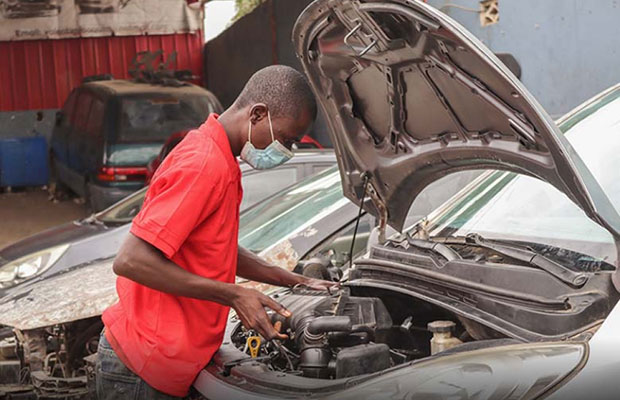
Paulo was just 10 years old when he saw a friend fatally shot during an attempted robbery. Sadly, he wasn’t really shocked; the two boys, along with three other friends, had been spending the majority of their time on the street
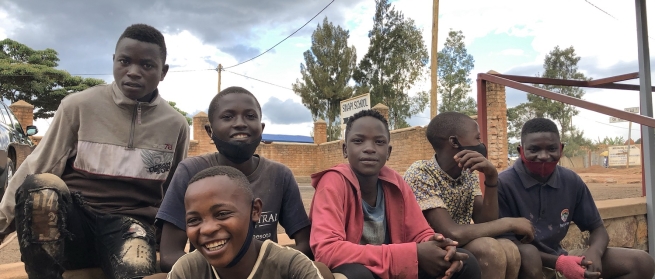
Salesian programs rescue children from labor and provide basic needs, education. NEW ROCHELLE, NY (June 12, 2022) Salesian Missions, the U.S. development arm of the Salesians of Don Bosco, joins humanitarian organizations and the
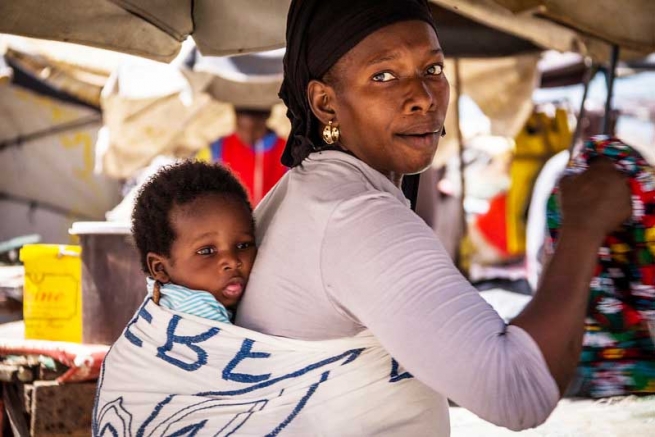
Salesian Missions highlights educational and social development programs that support parents. NEW ROCHELLE, NY (June 1, 2021) Salesian Missions, the U.S. development arm of the Salesians of Don Bosco, joins humanitarian organizat
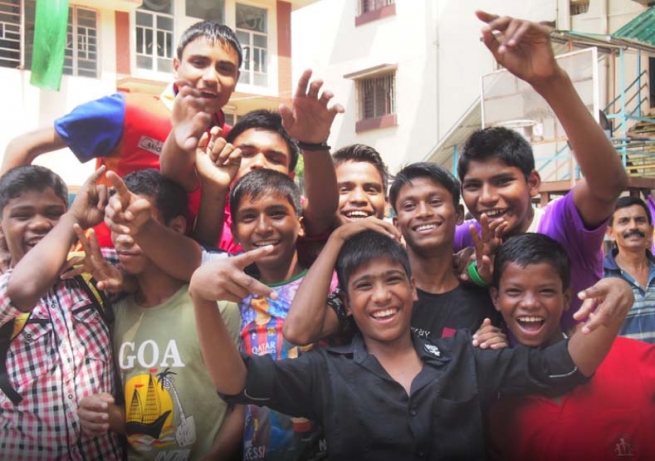
Salesian Missions highlights education and social programs supporting and educating street youth around the globe. NEW ROCHELLE, NY (April 12, 2021) Salesian Missions, the U.S. development arm of the Salesians of Don Bosco, joins

Programs in Angola, Colombia, India and Mexico illustrate the work of Salesians around the globe that are helping children gain an education and overcome trauma. NEW ROCHELLE, NY (June 4, 2020) Salesian Missions, the U.S. developm
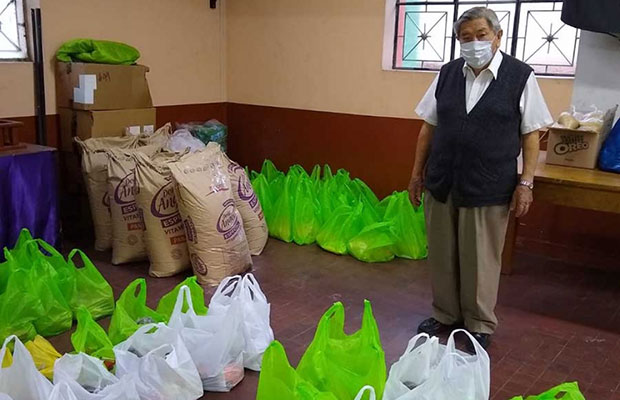
In times of crisis, Salesian missionaries are uniquely positioned to respond to the needs of the communities they serve. Living and working side by side with those who rely on them for help, our missionaries have earned the necess
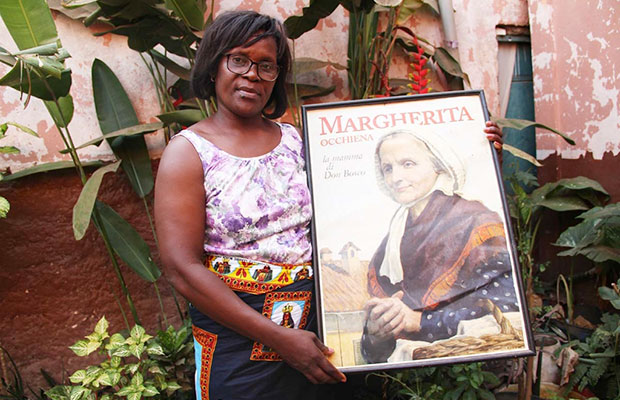
She was raising five children as a single mother—yet still had enough love to give to others. Hearing the call to serve, Berta André approached Salesian missionaries in Luanda, Angola, and soon discovered herself caring for som

Programs in Angola, Cambodia, India and Mail illustrate the work of Salesians that support this year’s theme, which is focused on celebrating achievements by, with and for girls. NEW ROCHELLE, NY (Oct. 11, 2019) Salesian Mission

They are sisters in misfortune: the hundreds of orphaned, abandoned and abused girls and young women living on the streets of Luanda, Angola. Surrounded by garbage, dust and the harsh realities of having to search for food while f
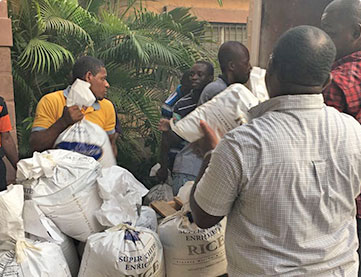
Salesian Missions includes agriculture in its vocational training programs – to ensure that youth of Rwanda learn better agricultural practices as well as keep the school self-sustaining in the face of the country’s food shortages.
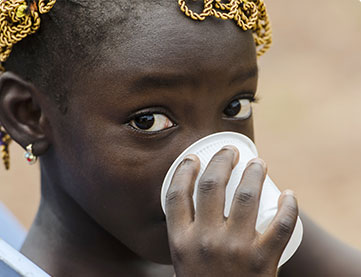
Salesian Missions includes agriculture in its vocational training programs – to ensure that youth of Rwanda learn better agricultural practices as well as keep the school self-sustaining in the face of the country’s food shortages.
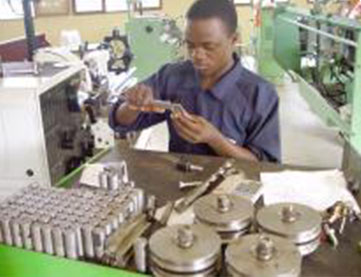
Salesian Missions includes agriculture in its vocational training programs – to ensure that youth of Rwanda learn better agricultural practices as well as keep the school self-sustaining in the face of the country’s food shortages.